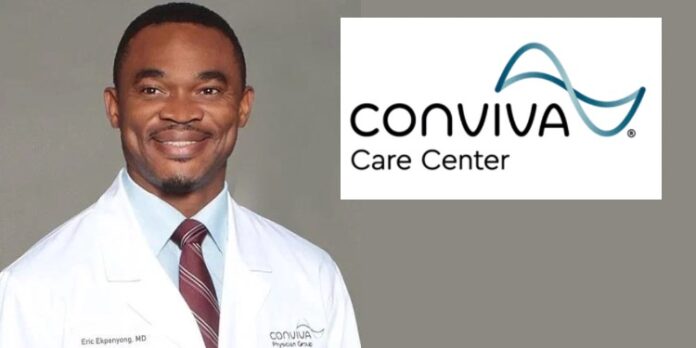How to Stay Safe & Cool in the Summer: Heat Safety and Awareness Tips for Seniors
Article By: Eric Ekpenyong, M.D., Conviva Care Center Floresville – As the world struggles through one of the hottest summer seasons on record, it is critical that everyone experiencing unusually hot weather – especially our senior population – seeks shelter and stays cool to maintain proper health and wellbeing.
Rising temperatures are putting people at risk for heat exhaustion and heatstroke. Higher temps are also lasting for longer periods, ushering in summer heat as early as spring and extending it longer into the fall.
Data show the global average temperature for July 2023 “was confirmed to be the highest on record for any month and likely for at least 120,000 years,” according to the United Nations weather agency and partners.
Locally, San Antonio has broken its record this year for most days of 105 degrees or higher. When humidity is factored in, the situation is even worse. In fact, San Antonio International Airport calculated a record-high 116-degree heat index June 20, 2023. As of June, 13 heat-related deaths were recorded across the state, and that was before the intense heat set in for July and August. Last year Texas experienced its second-hottest summer while suffering its worst drought in more than a decade statewide. As a result, an estimated 279 lives were lost—most of them people without housing and seniors living without air conditioning.
Summer Safety Strategies for Seniors
Heat-related illnesses are 100% preventable, but for seniors, there are many challenges to staying safe.
Compared to their younger counterparts, people 62 and older take longer to recover from dehydration – especially if they suffer from diabetes, hypertension or heart conditions. For example, a diabetic senior patient can become dehydrated quickly, because heat exhaustion causes more sugar to be put back into the bloodstream. Those on meds, like water pills for heart disease or aspirin, urinate more frequently, causing the body to dehydrate faster.
To prevent these and other risks, seniors should drink plenty of fluids throughout the day. Water is preferred, but other healthy options include drinks with electrolytes such as Propel and Gatorade.
Additionally, air conditioning, or at least a reliable fan, is also critical to surviving summer’s sweltering heat.
Limiting Your Time Outdoors
Use common sense, because when it comes to nature, nature usually wins.
The sun normally peaks between 10 a.m. and 2 p.m., but the heat index extends for a longer period. That means all physical exercise and/or activity should be restricted to mornings or evenings. Time outdoors should be kept to a minimum, and all the while, stay hydrated and cool.
One of the great benefits of our Conviva Care Centers is that we offer activities Monday through Friday in an air-conditioned environment, and we provide our patients with plenty of snacks and water.
Seniors with Multiple Health Conditions
When seniors are outdoors too long during summer months, hot temperatures could cause them to sweat profusely and/or begin to pant. That signals it is time to go indoors right away to cool off, hydrate and rest. In particular, seniors with comorbidity – the simultaneous presence of two or more diseases or medical conditions in a patient – run a higher risk of heat stroke and/or heat exhaustion.
Seniors must understand that the most important thing to do when the body’s core temperature rises is to apply an ice pack or water packs as soon as possible to cool down. An additional response to someone who is overheating is to pour room-temperature water or cold water onto the forehead and core. If someone begins to faint or seems unstable, immediately call 911.
Everyone is Vulnerable
African-Americans and other populations of color should not mistake increased presence of melanin in their skin with extra protection and/or immunity against the effects of high heat levels. Heat exhaustion and heat stroke do not discriminate. Everyone is impacted and affected by heat and can suffer dangerous consequences without proper protection and consistent hydration.
ABOUT ERIC EKPENYONG, M.D.
Dr. Ekpenyong leads a team of healthcare professionals at the Conviva Care Center, 260 US Hwy. 181 North Floresville, TX. He earned a medical degree from Ross University School of Medicine and received a Bachelor of Science from University of Texas Southwestern Medical Center in Dallas. A native of Nigeria, Dr. Ekpenyong is board certified in Family Medicine, and a member of the American Academy of Family Physicians. He holds certifications in advanced cardiovascular life support (ACLS), advanced trauma life support (ATLS), basic life support (BLS), and pediatric advanced life support (PALS). The physician also served as Lieutenant Commander in the U.S. Navy, receiving an honorable discharge in February 2023. His hobbies include playing piano, soccer and traveling.






